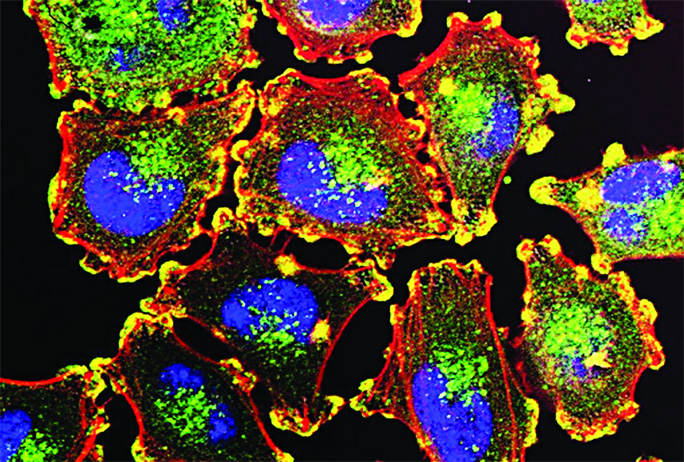
Xconomy Boston :
Neon Therapeutics closed 2019 by curtailing its cancer vaccine programs and laying off 24 percent of its workforce, part of a corporate restructuring aimed at finding a new path for the company. That new path will now be as a division of cancer drug developer BioNTech.
BioNTech announced Thursday that it has agreed to acquire Cambridge, MA-based Neon (NASDAQ: NTGN) in a $67 million stock deal. According to the terms, the BioNTech shares that Neon shareholders will receive value the company at $2.18 per share-a 77.2 premium to Wednesday’s closing stock price. When Neon went public less than two years ago, it priced its shares at $16 apiece. Neon’s stock price started the trading day at $1.98, up 60 percent from Wednesday’s close. Shares of Mainz, Germany-based BioNTech (NASDAQ: BNTX) opened 3.4 percent higher at $35.75 apiece. For most of its short history, Neon has researched cancer vaccines made from a patient’s own tumors. These vaccines focused on neoantigens, proteins that are found only on the surface of cancer cells. Such a personalized vaccine was intended to prompt an immune response to fight the cancer. Last summer,
Neon reported encouraging results from a Phase 1 study testing its lead cancer vaccine in patients with solid tumors. But the study was small, and the patients enrolled were first treated with nivolumab (Opdivo), an immunotherapy made by Bristol-Myers Squibb (NYSE: BMY). That made it difficult to determine how much of the patient benefit could be attributed to the Neon vaccine. Neon expected to learn more from Phase 2 studies. The company never got to those tests.
At the end of the third quarter of 2019, Neon had $44.2 million in cash-not enough to last one year, according to its quarterly report filed in November. One week after filing that report, the company announced the layoffs and corporate restructuring. The company said it would not spend any new money on its cancer vaccine research and would focus instead on its neoantigen T cell programs. Neon added that it was exploring “strategic alternatives,” the financial code words for finding a buyer for the company or its technology.
With the no new investment going into cancer vaccines, Neon’s most advanced program is NEO-PTC-01, a personalized T cell therapy candidate that targets neoantigens on a patient’s tumors. That program is preclinical but is being prepared for human tests in Europe. The company has said it plans to evaluate the therapy in melanoma patients whose cancer has spread and is not responding to treatment with a type of immunotherapy called a checkpoint inhibitor. Neon has another preclinical T cell therapy, NEO-STC-01, that targets neoantigens associated with the RAS gene, which has become a hot target for cancer drug developers. That program is being developed initially for pancreatic cancer.
Neon Therapeutics closed 2019 by curtailing its cancer vaccine programs and laying off 24 percent of its workforce, part of a corporate restructuring aimed at finding a new path for the company. That new path will now be as a division of cancer drug developer BioNTech.
BioNTech announced Thursday that it has agreed to acquire Cambridge, MA-based Neon (NASDAQ: NTGN) in a $67 million stock deal. According to the terms, the BioNTech shares that Neon shareholders will receive value the company at $2.18 per share-a 77.2 premium to Wednesday’s closing stock price. When Neon went public less than two years ago, it priced its shares at $16 apiece. Neon’s stock price started the trading day at $1.98, up 60 percent from Wednesday’s close. Shares of Mainz, Germany-based BioNTech (NASDAQ: BNTX) opened 3.4 percent higher at $35.75 apiece. For most of its short history, Neon has researched cancer vaccines made from a patient’s own tumors. These vaccines focused on neoantigens, proteins that are found only on the surface of cancer cells. Such a personalized vaccine was intended to prompt an immune response to fight the cancer. Last summer,
Neon reported encouraging results from a Phase 1 study testing its lead cancer vaccine in patients with solid tumors. But the study was small, and the patients enrolled were first treated with nivolumab (Opdivo), an immunotherapy made by Bristol-Myers Squibb (NYSE: BMY). That made it difficult to determine how much of the patient benefit could be attributed to the Neon vaccine. Neon expected to learn more from Phase 2 studies. The company never got to those tests.
At the end of the third quarter of 2019, Neon had $44.2 million in cash-not enough to last one year, according to its quarterly report filed in November. One week after filing that report, the company announced the layoffs and corporate restructuring. The company said it would not spend any new money on its cancer vaccine research and would focus instead on its neoantigen T cell programs. Neon added that it was exploring “strategic alternatives,” the financial code words for finding a buyer for the company or its technology.
With the no new investment going into cancer vaccines, Neon’s most advanced program is NEO-PTC-01, a personalized T cell therapy candidate that targets neoantigens on a patient’s tumors. That program is preclinical but is being prepared for human tests in Europe. The company has said it plans to evaluate the therapy in melanoma patients whose cancer has spread and is not responding to treatment with a type of immunotherapy called a checkpoint inhibitor. Neon has another preclinical T cell therapy, NEO-STC-01, that targets neoantigens associated with the RAS gene, which has become a hot target for cancer drug developers. That program is being developed initially for pancreatic cancer.

